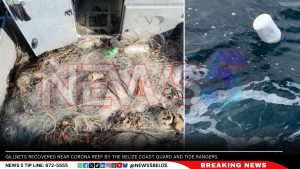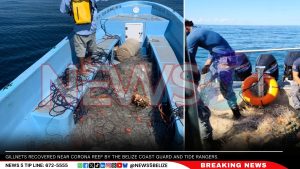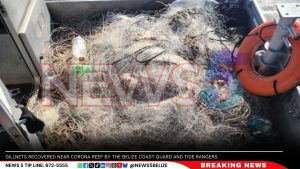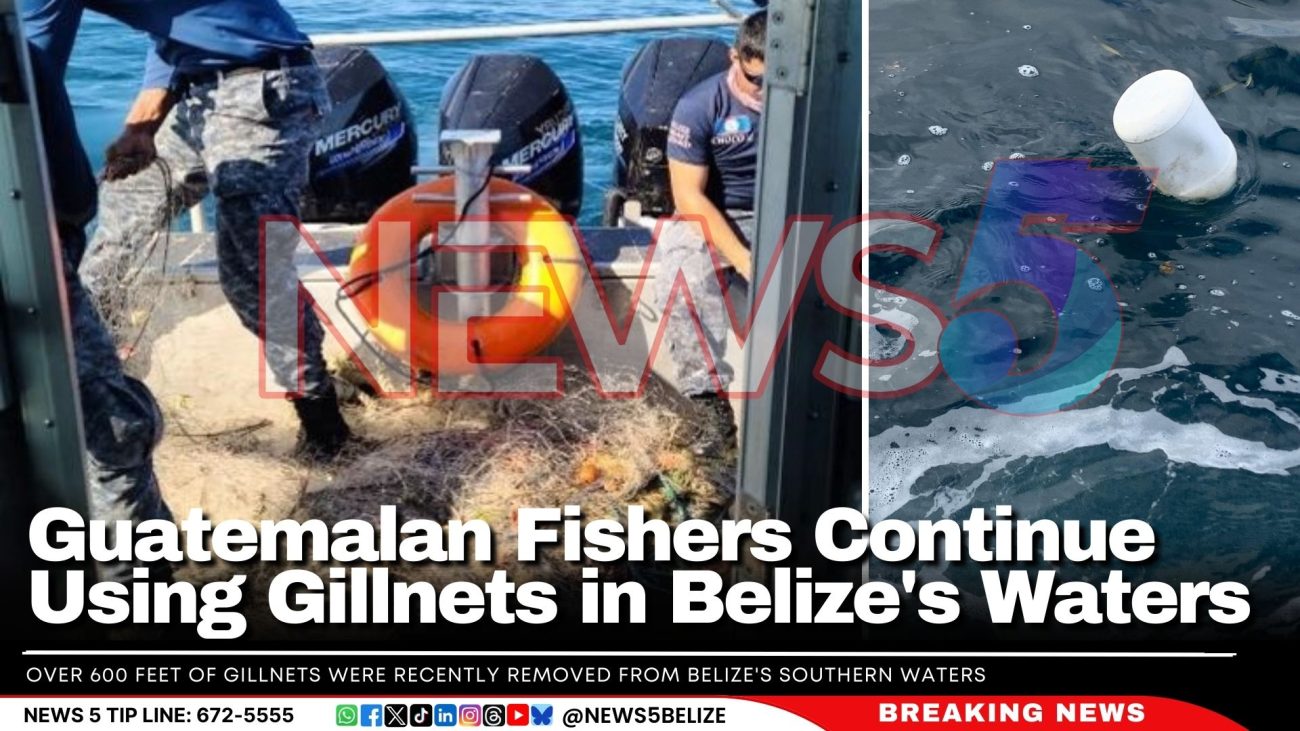Guatemalan Fishers Continue Using Gillnets in Belize’s Waters
Over 600 feet of gillnets were recently removed from Belize’s southern waters during an operation conducted by the Belize Coast Guard and Toledo Institute for Development and Environment (TIDE) rangers.
“Our rangers encountered a Belize Coast Guard vessel that was actually doing patrols in the area also—individual patrols. That Coast Guard vessel had encountered several gillnets, which of course, gillnets are banned in Belize,” said Leonardo Chavarria Jr., Executive Director of the TIDE.

According to Chavarria, the teams recovered over eight nets within two Fish Spawning Aggregation (FSA) sites, particularly within the Cayman Crown area and the Rise and Fall Bank.
Chavarria says that the gunshots fired in the area by what they believe are Guatemalan vessels were an “intimidation tactic.” He said, “It goes to show that situations could easily escalate in the area, especially when these illicit gears are being used and retrieved, because as you may know, a gillnet is very expensive. A gillnet could run up 800 plus dollars up to a thousand dollars. So if you are removing over nine gillnets, it’s already a significant amount of money.”

Chavarria added that it is common to see these types of “activities picking up during the FSA period.” During this time, fish would aggregate to reproduce in specific parts during the month of December through June every year, which “fishers would capitalise on these areas, knowing where these fish are reproducing and aggregating in big groups,” he added.
While gillnets are illegal in Belize, they remain legal in Guatemala, which leads to cross-border exploitation of the commercial species during the reproductive seasons. “The gillnets destroy all sizes of fish, and the longer you leave the gillnet there, by the time you go and retrieve it, some of the product that is on it is no longer usable,” Chavarria stated.

Chavarria also stated that the use of gillnets by non-Belizeans undermines the efforts of Belizean fishers who respect regulations and rely on sustainable fishing practices. “It is a sad reality because we are not seeing our Belizean fishers trying to exploit the fishpond and aggregation sites.”
Despite the escalation in illegal fishing, TIDE says it will continue its routine patrols and protect Belize’s fishery resources.







Facebook Comments